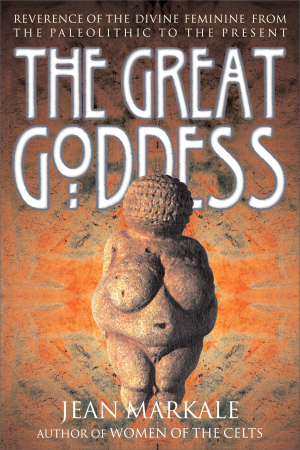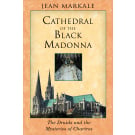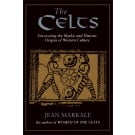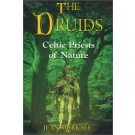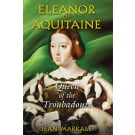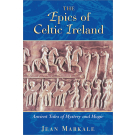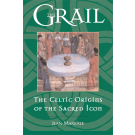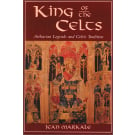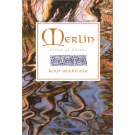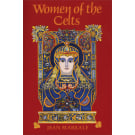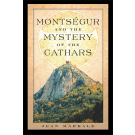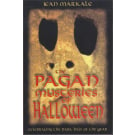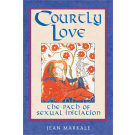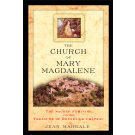The Great Goddess
Reverence of the Divine Feminine from the Paleolithic to the Present
- Pages: 272
- Book Size: 6 x 9
- ISBN-13: 9780892817153
- Imprint: Inner Traditions
- On Sale Date: September 1, 1999
- Format: Paperback Book
• A study of the primordial figure of the Great Goddess and her continued worship through time as shown by the myths, shrines, and sanctuaries around the world that honor this powerful symbol of creation.
• A noted historian on pre-Christian societies provides an extensive worldwide listing of sites and sanctuaries associated with goddess worship.
• Explores goddess worship in cultures around the world, including Native American, Egyptian, Indian, and Oriental civilizations.
• Demonstrates that although her worship has sometimes been forced underground it has never disappeared.
In ancient Babylon she was Anat, in Egypt, Isis and Hathor, Dana in Celtic Ireland, Rhea and Demeter in Greece, and in India, Anapurna the Provider. She is the Great Goddess, the Goddess of Beginnings, the symbol of Earth and the giver of life, the Vast Mother, who represents all the powers and mysteries of creation for early humanity.
Shifting her solar association onto masculine deities and blackening those of her symbols that, like the serpent, could not be assimilated, patriarchal societies forced the preeminent power of the feminine into an obscure and subservient position. Yet, as shown by noted scholar Jean Markale, the Goddess did not simply disappear when her position was usurped, and the power she represents has been the source of continuous religious devotion from ancient times through the Middle Ages up to the present day.
In looking at the plethora of myths, sites, and sanctuaries devoted to this powerful figure, The Great Goddess provides abundant evidence of the extraordinary permanence of her worship--even at the heart of those religions that tried to destroy her.
Introduction: The Vast Mother
Part 1: Images and Sanctuaries of the Goddess
1. Our Lady of the Beginnings: The Paleolithic Period
2. Our Lady Under Ground: The Megalithic Epoch
3. The Eclipsed Virgin: The Bronze Age, the Celts, and the Gallo-Romans
4. The Triumph of the Mother: The Christian Middle Ages
5. The Eternal Return of the Divine Woman: The Sixteenth to Twentieth Centuries
6. The Sacred Placed of Our Lady
Part 2: Our Lady in All Things
Introduction
7. The Indian Subcontinent, the Far East, and the Americas
8. Ancient Egypt and the Near East
9. Greece and the Aegean Sea
10. Continental Europe
11. Far Western Europe
Notes
Index of Sites, Museums, Sanctuaries, and Pilgrimages
Index
Booklist
"He repeatedly compares the imagery of the Virgin Mary to the imagery of goddess worship as far back as we can trace Her. All in all, this is a good book. It has a great deal of interesting information about the history of Goddess imagery."
PagaNet News
"In this comprehensive work, Markale traces beliefs and practices from ancient times to the present. For those who wish to learn more of the Great Goddess, reviled yet embraced by religions of the world, this book is a general overview offering excellent, readable information."
Glenda Martin, Crone Chronicles
"This is an important book, adding well-researched and thoughtful information to the goddess literature. I recommend it."
Seacoast Spirit, March/April 2003
In ancient Babylon she was Anat, in Egypt, Isis and Hathor, Dana in Celtic Ireland, Rhea and Demeter in Greece, and in India, Anapurna the “Provider.” She is the Great Goddess, the symbol of earth and the giver of life, the Vast Mother, who represented all the powers and mysteries of creation for our ancestors.
In this comprehensive exploration of the Goddess figure, Jean Markale, one of today’s foremost Celtic historians, examines how over time patriarchal societies tried to force the preeminent power of the feminine into an obscure and sub-servient position, shifting her solar association onto masculine deities and discrediting those of her symbols, like the serpent, that could not be easily assimilated. With its extensive investigation of all the myths, sites, and sanctuaries devoted to this influential figure, The Great Goddess provides us with abundant evidence of the extraordinary permanence of her worship--even at the heart of those religions that tried to destroy her.
Markale explains how the Goddess did not simply disappear when her position was usurped, but went underground, resurfacing time and again in altered but distinctly recognizable forms. The great solar goddess of Celtic culture reappears as the mythical Grainne and in the well-known legend of Tristan and Iseult. Features of the primordial Lilith, relegated to darkness in rabbinical tradition, can be discerned in the incomprehensible Black Virgins of Christian sanctuaries. And one of the key figures of modern Christianity, the Virgin Mary, possesses all the characteristics of the ancient Mother Goddess: wisdom, beneficence, nurturance, and sacred sexuality. Whether in Ancient Egypt, the Roman Empire, Celtic Europe, or the present day, the goddess played, and continues to play, an integral part in society’s need to connect with the source of all creation.
Jean Markale (1928-2008), was a poet, philosopher, historian, and storyteller, who spent a lifetime researching pre-Christian and medieval culture and spirituality. He was a former specialist in Celtic studies at the Sorbonne and author of more than 40 books, including The Druids, The Celts, Merlin, Women of the Celts, and King of the Celts.



